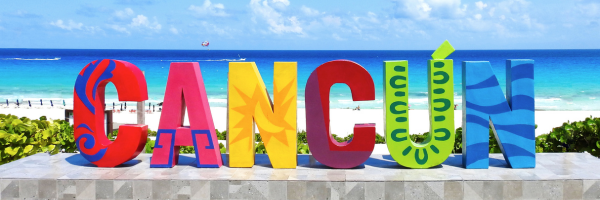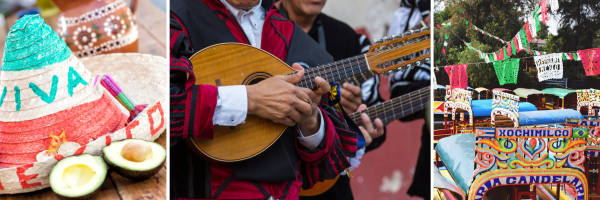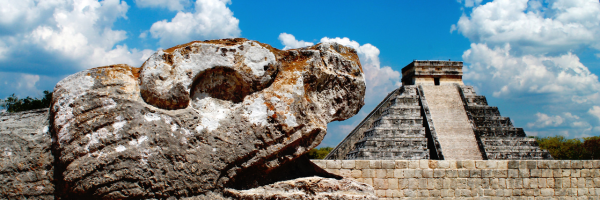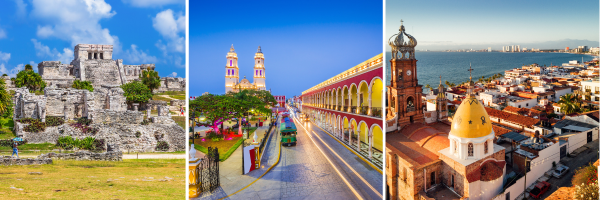
In recent years, Mexico has emerged as a favored destination for African American travelers seeking cultural enrichment, historical resonance, and vibrant experiences. Beyond its famed beaches and archaeological sites, Mexico offers a deep connection to African American heritage, providing a unique lens through which to explore shared histories of resilience, creativity, and cultural exchange.
Historical Ties
The relationship between African Americans and Mexico dates back centuries, rooted in shared experiences of struggle and solidarity. During the era of slavery in the United States, Mexico served as a beacon of hope for freedom-seeking African Americans, with many finding refuge in border states like Texas and Louisiana. The story of the Seminole Maroons, descendants of escaped slaves who formed communities in Mexico, is a poignant example of this transnational connection.
Moreover, Mexico’s role as a sanctuary for African American artists, intellectuals, and activists during the Harlem Renaissance and the civil rights movement further strengthened cultural ties between the two communities. Figures such as Langston Hughes, Josephine Baker, and James Baldwin found inspiration and camaraderie in Mexico, leaving an indelible mark on its cultural landscape.
Cultural Exchange

Today, African American travelers flock to Mexico not only to bask in its natural beauty but also to engage with its rich cultural tapestry. Cities like Mexico City, Oaxaca, and Veracruz offer a wealth of cultural experiences, from exploring Afro-Mexican heritage in the Costa Chica region to immersing oneself in the vibrant art scene of the capital.
One highlight for African American travelers is the celebration of Black History Month in Mexico, which has gained traction in recent years. Events and exhibitions throughout the country commemorate African contributions to Mexican culture, history, and society, fostering dialogue and exchange between African American and Mexican communities.
Moreover, festivals such as the Afro-Latino Fest in Mexico City provide a platform for artists, musicians, and activists from across the African diaspora to showcase their talents and connect with like-minded individuals. These gatherings serve not only as celebrations of diversity but also as opportunities for cross-cultural dialogue and solidarity.
Spiritual Journeys:

For many African American travelers, Mexico offers a spiritual pilgrimage to ancestral roots and indigenous traditions. Sites like Chichen Itza, Teotihuacan, and Palenque provide glimpses into ancient civilizations that predate European colonization, offering insights into the interconnectedness of human history and the resilience of indigenous cultures.
Additionally, Mexico’s vibrant Afro-Mexican communities in regions like Veracruz and Guerrero offer opportunities for cultural immersion and exchange. Visits to towns like Yanga and Cuajinicuilapa provide firsthand experiences of Afro-Mexican culture, from traditional music and dance to culinary delights rooted in African heritage.
Challenges and Opportunities:

Mexico, with its rich tapestry of culture, history, and natural beauty, beckons travelers from around the world. For African Americans considering a visit to Mexico, concerns about safety may understandably arise. While it’s essential to approach travel with caution and awareness, understanding the nuanced landscape of safety in Mexico can help alleviate concerns and ensure a rewarding experience.
First and foremost, it’s important to recognize that Mexico is a vast and diverse country, encompassing bustling metropolises, tranquil beach towns, and rugged mountain landscapes. Safety conditions can vary significantly from one region to another, so conducting thorough research and staying informed about current events and advisories is crucial.
Urban centers like Mexico City, Guadalajara, and Monterrey are generally safe for tourists, with robust tourist infrastructure and a visible police presence in popular areas. However, as with any major city, petty crime such as pickpocketing and scams can occur, so travelers should exercise vigilance and take common-sense precautions like keeping valuables secure and avoiding unfamiliar or poorly lit areas at night.
In resort areas such as Cancún, Playa del Carmen, and Cabo San Lucas, where tourism is a primary industry, safety measures are typically well-established to ensure the well-being of visitors. These areas often have private security patrols, and hotels and resorts prioritize guest safety with measures such as gated entrances and surveillance cameras.
When venturing off the beaten path to explore Mexico’s lesser-known destinations, it’s advisable to exercise increased caution and research local safety conditions beforehand. Remote areas, particularly those near the borders with Guatemala and Belize, may have limited infrastructure and be more susceptible to issues like drug-related violence and organized crime. Travelers should stay informed about travel advisories from their government and consider the guidance of local authorities and reputable tour operators.
For African American travelers, navigating racial dynamics in Mexico may also be a consideration. While overt racism is relatively uncommon, cultural differences and stereotypes can sometimes lead to misunderstandings or discomfort. However, many African American travelers report positive experiences in Mexico, with locals often welcoming and curious about diverse backgrounds.
Building rapport with locals through respectful engagement and language efforts can help foster positive interactions and mitigate potential tensions. Learning basic Spanish phrases and cultural norms can also enhance the travel experience and demonstrate a genuine interest in connecting with the local community. There are also many tools available today that translate for you and assist in communicating in other languages.
Ultimately, while safety concerns are valid and should be taken seriously, they should not overshadow the myriad joys and opportunities for discovery that Mexico has to offer. By staying informed, exercising caution, and embracing cultural exchange, African American travelers can embark on a journey of exploration and enrichment in this vibrant and diverse country.
As people of color continue to explore Mexico’s cultural riches and historical legacies, they contribute to a growing narrative of transnational solidarity and exchange. From tracing ancestral roots to celebrating shared cultural traditions, the journey to Mexico offers insights into the resilience, creativity, and interconnectedness of African diasporic communities across the Americas. By embracing the complexities of their shared histories and forging meaningful connections, African American travelers and their Mexican counterparts can pave the way for a more inclusive and interconnected future.
Fifty Nifty and More is seeking special available travel packages to Mexico for our Tribe. Please share with us what you would like to see and do so that we can curate our trips for you.

Be the first to comment